
- Appointments
- Awards
- Books & Authors
- Committees
- Deaths
- Defence
- Economic
- Environment
- Finance
- Important Days
- International
- Miscellaneous
- National
- Persons in NEWS
- Places in NEWS
- Regional
- Reports
- Resignations & Retirements
- Science & Technology
- Sports
- June 2018 - Exams Resources
- Current Affairs - Quiz
- Current Affairs - Test
- Current Affairs - PDF
Current Affairs June 2018 - Finance
1 - Reserve Bank of India organized Financial Literacy Week

The Reserve Bank of India, RBI, organized Financial Literacy Week from 4th till 8th of June, 2018, across the nation. The theme was Customer Protection. The aim was to create financial awareness among bank customers about financial products and services, good financial practices and digitization.
The literacy week focussed on four broad themes, viz. KYC, Exercising Credit Discipline, Grievance Redressal and Going Digital (UPI and *99#). The Reserve Bank of India since 2017 has earmarked one week in a year as the financial literacy week.
2 - RBI increased Repo Rate by 25 BPS in Second Bi-Monthly Monetary Policy Statement (2018-19)

Monetary Policy Committee (MPC) of Reserve Bank of India has increased the policy Repo Rate under the liquidity adjustment facility (LAF) by 25 basis points to 6.25 percent in the Second Bi-monthly Monetary Policy Statement (2018-19). Consequently, the reverse repo rate under the LAF stands adjusted to 6.0 percent, and the marginal standing facility (MSF) rate and the Bank Rate to 6.50 percent.
MPC revised CPI inflation for 2018-19 to 4.8-4.9% in the first half and 4.7% in the second half. The MPC stated that the GDP growth rate for 2018-19 is retained at 7.4 percent.
3 - RBI amended Gold Monetisation Scheme

The Reserve Bank of India (RBI) has made few amendements in the Gold Monetisation Scheme (GMS) to make it more attractive and enable people to open a hassle-free gold deposit account.
These deposits will be made with the designated banks for a short period of 1 to 3 years. Deposits can also be allowed for broken periods such as for 1 year 3 months or for 2 years 4 months 5 days. From now onwards, the short-term deposits will be treated as bank's on-balance sheet liability.
4 - Short-term subsidised crop loan to be under DBT mode

Interest subsidy scheme on short-term crop loans of up to Rs 3 lakh will be implemented through the DBT mode from the current financial year. The government has earmarked Rs 15,000 crore for 2018-19 towards interest subvention for short-term crop loans.
Reserve Bank of India also notified that the Interest Subvention Scheme (ISS) 2018-19 will be required to be settled as applicable in Plan Scheme. As per the scheme, farmers can avail short-term crop loans up to Rs 3 lakh at subsidised interest rate of 7% that could go down to 4% on prompt repayment.
5 - RBI to set up Public Credit Registry
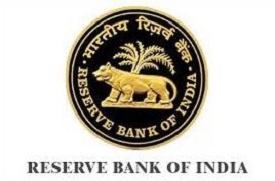
The Reserve Bank of India (RBI) has decided to set up a Public Credit Registry (PCR). The PCR will be an information repository that collates all loan information of individuals and corporate borrowers.
The repository will be set up in a modular and phased manner. The Reserve Bank of India has constituted a 10-member High Level Task Force on Public Credit Registry (PCR) for India headed by YM Deosthalee, ex-CMD, L&T Finance Holdings.
6 - SBI Research report estimated additional gain of Rs 37,426 crore in revenue in 2018-19

A SBI Research report estimated an additional gain of 37,426 crore rupees in revenue in 2018-19 due to surge in oil prices and better tax collection due to Goods and Services Tax - GST.
According to the report, 16 out of 24 states have seen their revenues rising, with the aggregate gain being 18,698 crore rupees for FY18. Combined with the revenue growth due to crude price rise, the overall gain will be over Rs. 37000 crore. Gujarat, Haryana, Maharashtra, Chhattisgarh, Jharkhand and Punjab have gained the maximum from GST while Karnataka, Bengal, UP, MP and Assam have reported a decline in tax collection post-GST.
7 - Mobile Banking rankings released by SBI

According to State Bank of Indias (SBI) annual report for 2017-18, Axis Bank tops the largest value share of mobile banking transactions with 17.25% and Paytm tops volumes with 22%. Paytm forms 0.25% share of mobile banking transactions. ICICI bank was placed at second place with 17.1% share of transactions by value.
SBIs volume share of mobile transactions has dropped down by over 5% points from nearly 25% to 19.5%. Mobile banking usage has increased from 977 million in FY17 to 1,871 million in FY18.
8 - RBI issued draft guidelines to modify loan system for large borrowers
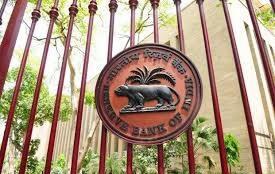
With a view to enhance credit discipline among the larger borrowers enjoying working capital facility from the banking system, RBI issued draft guidelines to modify the system for delivery of bank credit for such borrowers. The draft has specified minimum level of loan component in fund based working capital finance and credit conversion factor for the undrawn portion of cash credit availed of by large borrowers.
In respect of borrowers having aggregate fund based working capital limit of Rs. 150 crore, a minimum level of loan component of 40% shall be effective and credit conversion factor of 20%.
9 - MARG ERP Ltd united with ICICI Bank
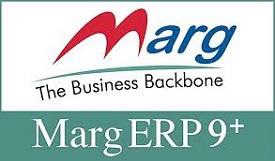
Marg ERP limited, a leading Enterprise Resource Planning (ERP) company partnered with ICICI Bank to offer an integrated payments platform to Micro, Small and Medium Enterprise (MSME) customers, using Margs accounting software.
This integration enables ICICI Banks current account holders to securely connect their bank account with the Marg ERP software and undertake an array of digital transactions from within the ERP platform. It will enable businesses to initiate vendor & salary payments, automate reconciliation of banking and accounting entries, apply for working capital loans as well as schedule future dated payments.
10 - HDFC became 5th biggest consumer financial services company on Forbes list

Forbes placed Housing finance major HDFC at 202nd place in its overall list of 2,000 firms across the global list of consumer financial services category. As compared to its 2017 rankings, HDFC has moved up by 7 places. The consumer financial services category was topped by American Express whereas Indiabulls Housing Finance was the only other Indian company (at 13th place) on the list.
Overall, there were 58 Indian companies among 2000 firms. Fortunes 2000 global list included 58 Indian companies worldwide. Reliance Industries was placed at 83rd position.
11 - Fitch Lowers Axis Bank's Outlook to Negative
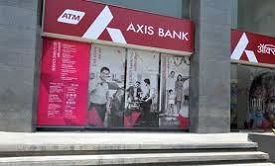
Global Rating agency Fitch has announced that ICICI Bank and Axis Bank have inequalities in their risk control mechanisms and has revised down its outlook on the latter to negative on sour assets worries.
It downgraded ICICI Banks support rating to 3, from 2, its support rating floor to BB+, from BBB-. But the agency has affirmed the issuer default ratings and viability ratings of ICICI Bank and Axis Bank at BBB- and BBB-. Axis Banks rating degraded to negative from stable, pointing to the high proportion of NPAs.
12 - Muthoot Fincorp, NSDC to train 10,000 youth under PMKVY
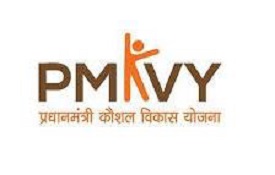
Muthoot Fincorp Limited will partner with National Skill Development Corporation to train over 10,000 youth over the next three years. NSDC has approved a target of 3,000 candidates in the first year and 3,500 each in the subsequent two years.
The Muthoot Pappachan Group will also absorb 80 per cent of the trained students (8,000) into the Group for regular positions (Job Roles), after successful completion of training and assessment of the candidates. PMKVY is the flagship scheme of the Ministry of Skill Development & Entrepreneurship.
13 - RBI tightened norms for Liberalised Remittance Scheme

The Reserve Bank of India has tightened norms for Liberalised Remittance Scheme (LRS) by making quoting of the Permanent Account Number (PAN) mandatory even for transactions below 25,000 US dollar.
A system for daily reporting of individual transactions under the LRS by banks also has been put in place. It enables banks to view the remittances already sent by an individual during the financial year, thus improving monitoring and ensuring compliance with the LRS limits.
14 - SEBI simplified buyback regulations, changes IPO price band timeline
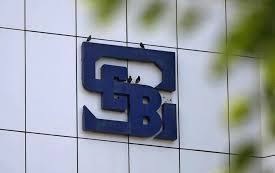
Based on suggestions made by the regulators Primary Market Advisory Committee (PMAC), the Securities and Exchange Board (SEBI) has approved amendments to buyback and takeover regulations and changed the time for announcing the price band of initial public offering (IPO) from 5 to 2 days.
Under the new regulations, the buyback period of a companys shares has been redefined as the time between the boards resolution to that effect and the date on which the payment will be made to shareholders. SEBI also said that at least 15% of the securities a company proposed to buy back should be reserved for small shareholders, while the maximum limit was capped at 25% of the paid-up capital. Besides, the regulator allowed companies to buy back as much as 10% of shares outstanding without shareholders resolution.
15 - RBI revised housing loan limits under priority sector lending

The Reserve Bank of India (RBI) increased the housing loan limits under priority sector lending (PSL) to Rs 35 lakh in metropolitan centres under the affordable housing scheme and Rs 25 lakh in other centres, provided the overall cost of the dwelling unit in the metropolitan centre and at other centres does not exceed Rs 45 lakh and Rs 30 lakh, respectively.
Loans to individuals up to Rs 28 lakh in metropolitan centres and Rs 20 lakh in other centres, will be eligible to be classified under priority sector, "provided that the cost of dwelling unit does not exceed Rs 35 lakh and Rs 25 lakh.
16 - RBI alters relative definition to check outward remittances

Reserve Bank of India (RBI) has narrowed the definition of 'relatives' to prevent misuse of the Liberalised Remittance Scheme (LRS). Going forward, funds under the maintenance of close relative category can be sent only to immediate relatives such as parents, spouses, children and their spouses.
Outward remittances under maintenance of close relatives shot up to almost $3 billion in 2017-18 from a mere $174 million in 2013-14. It has doubled since 2015-16.
17 - SEBI amends IPO norms

SEBI has amended few norms. Some of them are:
Brought down the minimum anchor investor size in SME IPOs to Rs 2 crore
The category of sub-brokers would be done away with and instead such entities would have to migrate to authorised persons or trading members category
Entities going for IPO can announce the price band two days before commencement of the offer
Managing Directors at the market infrastructure institutions (MIIs) can have only up to two terms of five years each or up to 65 years of age, whichever is earlier
18 - PM Modi inaugurated 3rd AIIB Meeting in Mumbai
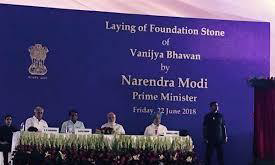
Prime Minister Narendra Modi inaugurated the 3rd Annual Meeting of the Asian Infrastructure Investment Bank (AIIB) on June 25-26 in Mumbai.The theme for this year's meeting is "Mobilising Finance for Infrastructure: Innovation and Collaboration".
The two-day meet was jointly hosted by the Asian Infrastructure Investment Bank (AIIB) and the Department of Economic Affairs. The Asian Infrastructure Investment Bank (AIIB) is a multilateral development bank that aims to support the building of infrastructure in the Asia-Pacific region. AIIB has sanctioned 1.2 billion dollars for six infrastructure projects in India.
19 - EXIM Bank extended USD 10 Million Line of credit to Republic of Seychelles
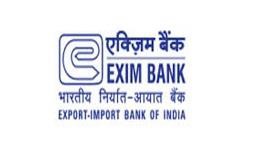
Exim Bank has, on behalf of the Government of India, extended a Line of Credit [LOC] of USD 10 million [first tranche of USD 50 million] for procurement of goods and projects to the Government of Republic of Seychelles.
Exim Bank, till date, has extended 2 Lines of Credit to the Government of the Republic of Seychelles, taking the total value of LOCs extended to USD 28 million. Exim Bank has now in place 233 Lines of Credit, covering 62 countries in Africa, Asia, Latin America and the CIS, with credit commitments of around USD 22.86 billion.